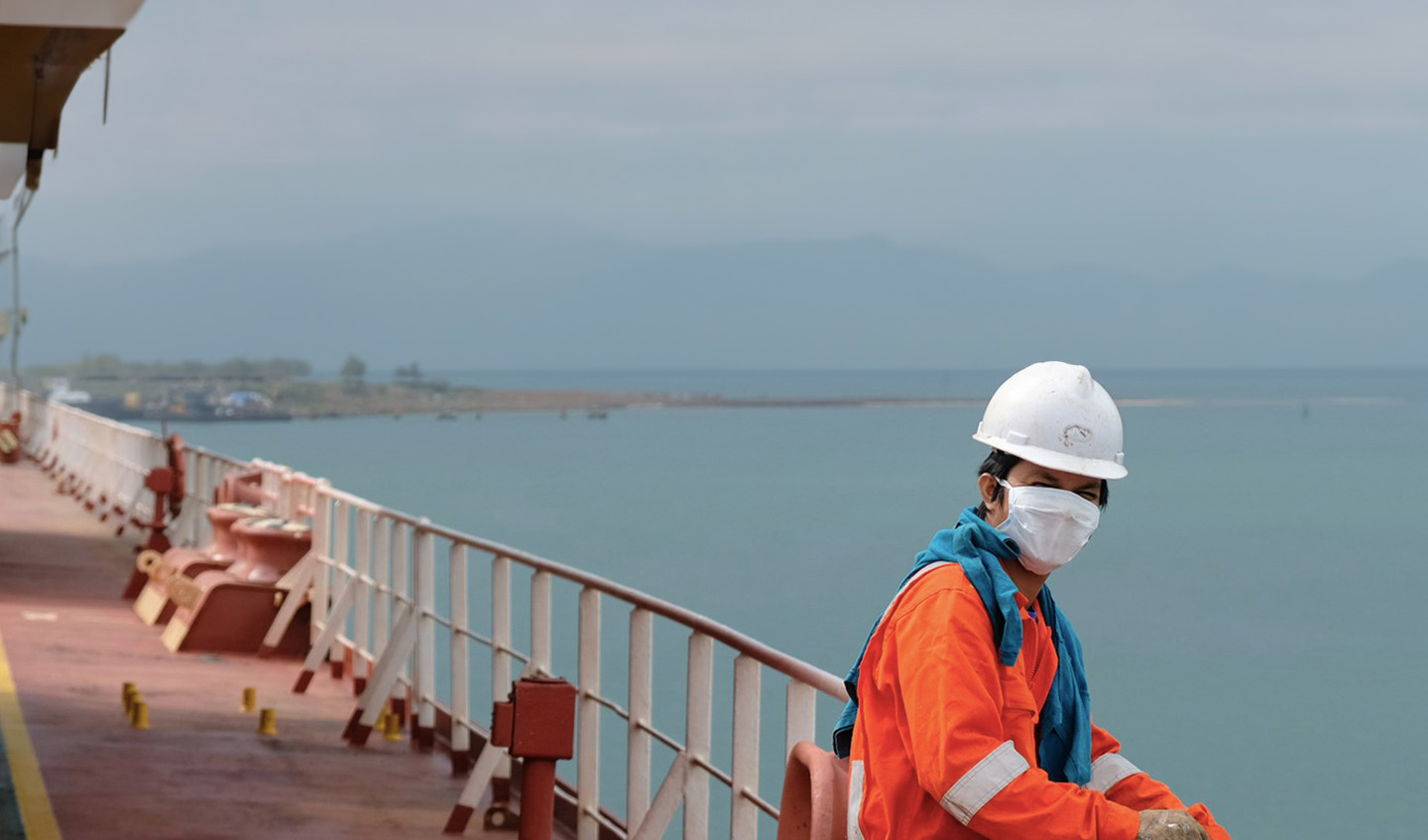As we look back at a year unlike any other in living memory, the words ‘health’ and ‘safety’ have never been far from the headlines. Each of us had to adapt to a virus that had the power to change our personal health. At the same time, our individual actions had a profound impact on the safety of every person and every business we came into contact with.
So what can we learn from this astonishing period? Put simply, many of the powerful forces of change from a pre-COVID-19 world have been accelerated. Here are three of them, which are relevant to all operators of maritime businesses trying to create the capacity to cope with a more uncertain world.
Corporate social responsibility
For the last 20 years, many businesses that employ essential workers have measured themselves in terms of the value they bring to shareholders, rather than the value their employees bring to society. The pandemic flipped those values. Since the coronavirus outbreak, those businesses have been very publicly framing the societal value and importance of their front-line workers. To me, it means we’re finally seeing the true meaning of corporate social responsibility; companies are living and breathing it for the first time. In maritime, that shift has meant organisations talking about seafarer safety, about the mental health of their employees, and their overarching role in a global, connected world.
Hopefully, employers are listening to their workforces when they talk about their wellbeing in a post-COVID-19 world, because the pandemic has had a profound effect. A recent LR global survey of employees’ mental health showed that 70% of respondents said they were experiencing more workplace stress than before the pandemic. That could have repercussions for businesses if it’s not addressed, because the pandemic has demonstrated that the health of the workforce is the health of a business. No health, no business, if put simply.
It’s said it takes two months to build a habit, and many knowledge workers have been working remotely for a year. While there are downsides, there are lifestyle benefits too. I think the blended approach of part office/part home working – once we return to offices – will stick. Employees will expect it, so employers will have to be more flexible and more understanding of family circumstances. Rather than being measured on attendance in an office, there needs to be a switch to measuring effectiveness. In other words, organisations will need to measure outcomes, rather than outputs from their employees. It’s a much more efficient way to work, but needs trust between employer and worker.
Safetytech
Downloading a COVID-19 tracing phone app has been many people’s first experience of safetytech, and it’s unlikely to be their last. Before the pandemic, safetytech was a market sector predicted to grow rapidly by a report from the LR Foundation. That trend has been accelerated. Construction workers were given proximity meters, to check they stayed two-metres or more from colleagues. QR codes – an existing technology – suddenly became a regular part of daily life in many parts of the world, used to register personal location data with a COVID-tracing app. Instant body-temperature sensors became commonplace at offices and airports. Maritime workers have been undergoing their annual medical checks by video call. All offer some varying levels of benefit to employers and employees which are unlikely to be forgotten.
An output of the increase in the use of safetytech is data. Lots of it. And new questions about how it’s used. The preservation of the privacy of each individual’s data has been the big trend of the last decade. But in a pandemic, when one person’s health has a direct impact on that of another person, we may have to rethink how data is used. This plays out at an organisational level, too. There’s a phrase which is frequently used in the health and safety world; ‘businesses scream about safety, but whisper about health’. Once an employee is working safely, organisations have been reluctant to interfere with their health, which was often seen as something that takes place outside work. And yet, as many workplaces re-populate, employees may be asked whether they’ve had an anti-COVID-19 vaccine. Suddenly, health has become an organisational concern.
Future survival
Very few organisations had a plan to deal with the impacts of a pandemic, yet most supply chains kept running and online orders were fulfilled. Of course, there have been personal tragedies and painful loss. But looking at the overall picture, the human race broadly survived and trade continued, although few of us had a plan. What can we learn from this? My advice is to avoid creating rigid plans to deal with a detailed list of imagined future events. Instead, try to create adaptability in your organisation, and capacity to cope with whatever comes your way. Look at seafarers as a good example of adaptability. At sea, they’re trained to adapt to the circumstances they face. They’re resilient and resourceful. Seafarers – much like airline pilots – have learnt to adapt quickly and effectively to changing circumstances, understanding the capacity of their vessel and crew to survive the stresses and dangers of life at sea.
At an organisational level, we can learn from this ability to adapt to rapidly changing circumstances. Plan guidelines, not procedures. Try scenario planning – the ability of a team to rapidly diagnose a problem and provide an effective response, rather than creating a list of possible disruptive events, with accompanying plans. Talk through the next types of scenarios, and how to create the capacity to keep your business running effectively.
This idea of creating capacity goes against the ‘just in time’ model of supply chain management over the last 30 years. It’s a fundamentally different approach, but the right one to cope with a more disrupted world of increasing climatic and political change.







